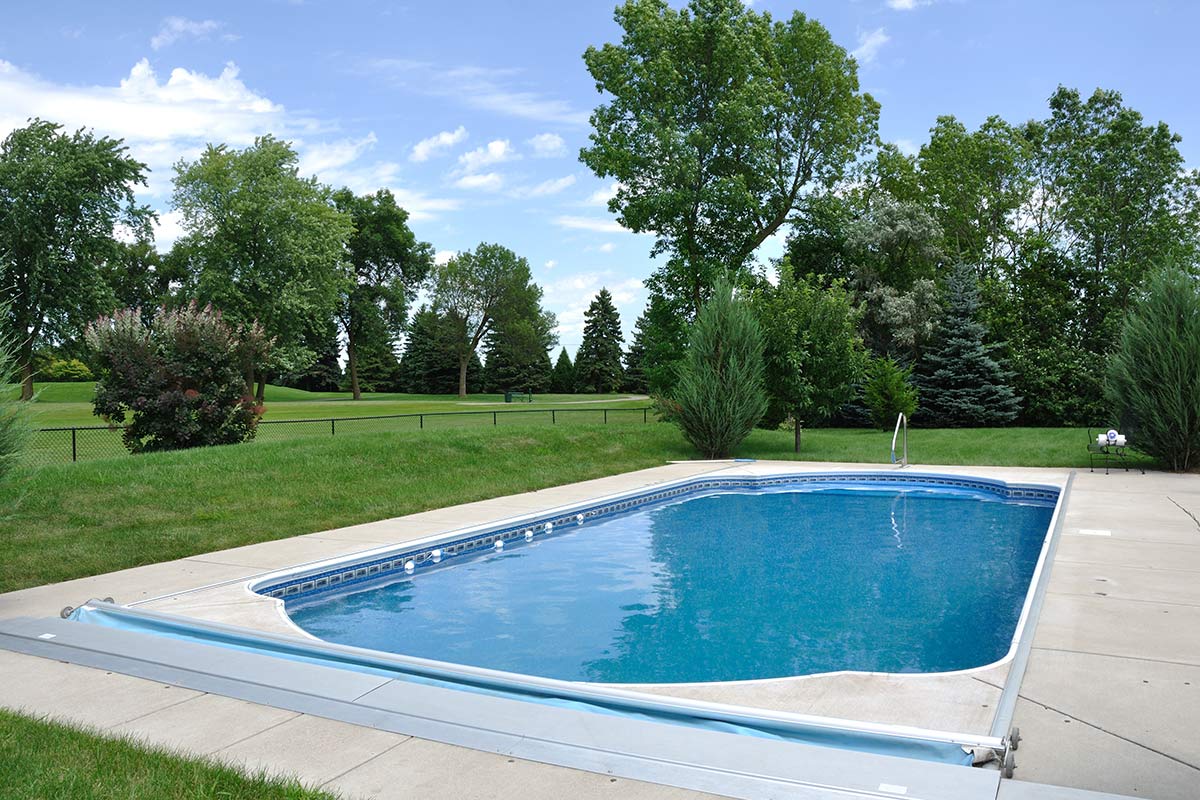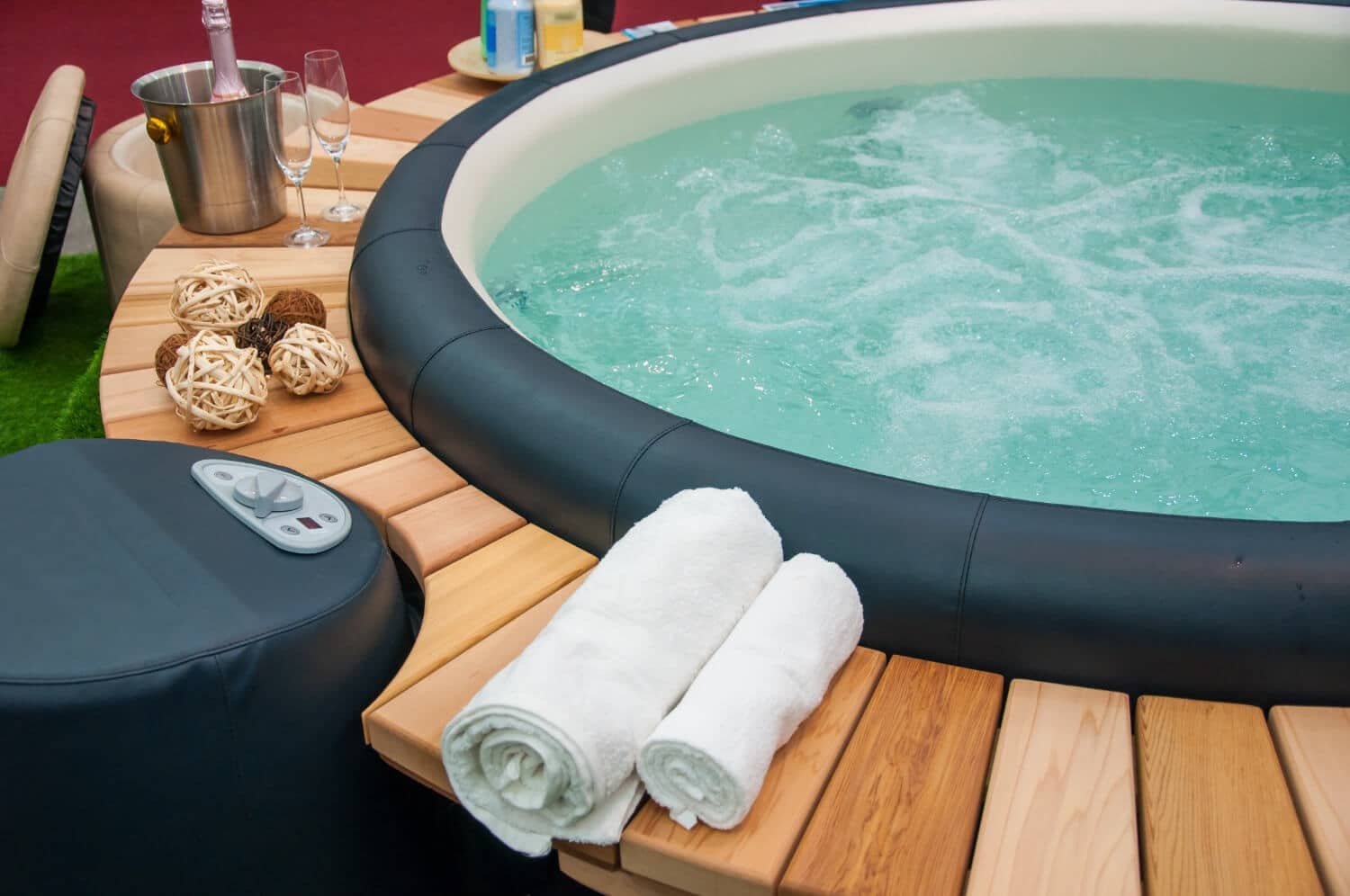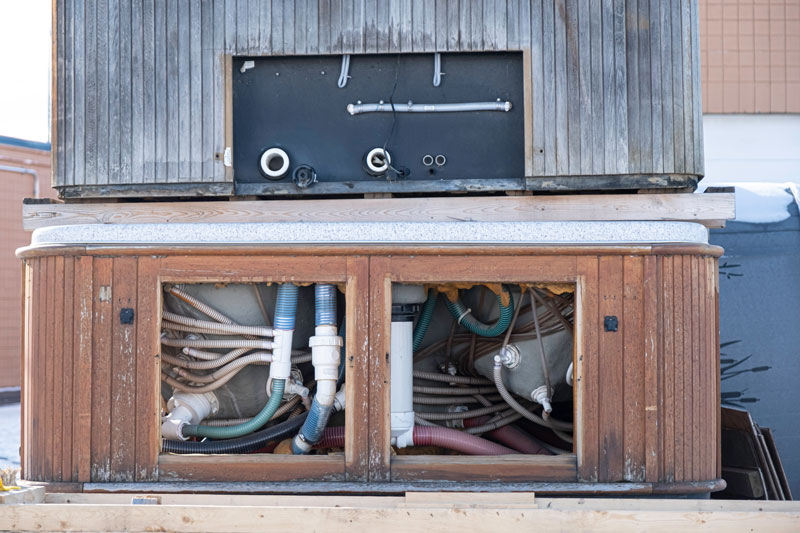Are you considering getting a swimming pool for your backyard that will bring years of delight, laughter and amusement to your family? Without doubt, owning a swimming pool can have an incredible effect on your life. To ensure the most out of this experience though, it’s essential you are aware of what possibilities you have and which type is best suited to meet all your needs.
Option #1: Above Ground Swimming Pools pros and cons
Advantages of above ground pools
An indisputable benefit of owning an above ground swimming pool is the cost factor. Without a doubt, it’ll be more economical than its in-ground counterpart (saving even more if you don’t construct a large deck around it). Thus, foregoing the purchase of an expensive in-ground pool for one that’s much less costly.
Disadvantages of above ground pools
Above-ground pools certainly come with their drawbacks. Most of the time, these types of pools are not regarded as a pleasing sight and can even ruin your home’s aesthetic appeal. Moreover, certain neighborhoods do not permit them in accordance to their covenant regulations. Therefore, although you may be able to build a deck entirely around it or make other improvements that might help enhance its appearance; an above ground pool is likely going to detract from your property value rather than add it.
While the shapes of above ground pools are limited to circles, ovals, and rectangles; their lifespan is also quite minimal. The metals used in its production tend to corrode quickly due to oxidation, therefore a majority of these structures only last between 8-15 years before they need replacing or total removal. Moreover, when it comes time to sell your house an above ground pool will not be considered as a benefit but instead act more like a liability that could even deter potential buyers from making an offer!
Option #2: Vinyl Liner Inground Swimming Pools pros and cons
Advantages of vinyl liner pools
If you’re in the market for an inground pool and need to keep a close eye on your wallet, vinyl liner may be the most suitable option for you. Its material costs are lower than other types of pools, making it more cost-effective with initial estimates ranging from $5,000 – $10,000 less than concrete or fiberglass options. Moreover, due to advances in technology there is no limit when it comes to size and shape; get as deep or curvy/straight/large as desired!
Disadvantages of vinyl liner pools
A significant downside of having an inground pool with a vinyl liner is the material itself – polymers may break down and require replacing over time, while they can be easily torn or come off at the sides which results in it gradually slipping into the water.
Typically, you can anticipate your inground vinyl liner to remain in use for up to twelve years, even with any declared warranties. On average the total price of replacement (materials, labor and water) is around $3,000-$7,000 depending on pool size and shape.
The downside of a liner pool is its appearance. In general, an installed vinyl liner typically looks less expensive and more temporary than fiberglass or concrete pools. Therefore, it’s unlikely to add the same level of value to your home as a comparably-sized fiberglass or concrete pool would do. As such, many countries now prefer installing exclusively fiberglass and/or concrete pools rather than vinyl liners ones.
Option #3: Concrete (Gunite) Swimming Pools pros and cons
Advantages of concrete (gunite) pools
Apart from its aesthetic appeal, a concrete pool is the perfect choice for homeowners who desire an individualized feature to their property. With its vast array of customizable size and shape options, you can rest assured that your vision will come alive with incomparable finesse. What’s more, since it adds significant value to the home when looking to sell in future years – this investment pays off both today and tomorrow!
Disadvantages of concrete (gunite) pools
Undoubtedly, the biggest pitfall of having a concrete pool is the extensive upkeep. Not only must it be treated to chemicals and undergo frequent brushing during swimming season, but also require costly resurfacing every 8-15 years – making maintenance particularly demanding!
A further downside of concrete pools is their roughness, which not only increases the need for regular acid washing and encourages growth of algae but also can be uncomfortable on children’s feet – often leading to cuts after prolonged pool days. In addition, constructing a concrete pool typically takes three months or more; an eternity for any homeowner keen to make use of it!
Concrete pools are not the best candidate for salt chlorination, as they require more maintenance and will need to be resurfaced sooner than with traditional water sanitization. Despite this setback, installing a salt chlorinator can still bring many benefits – making it difficult to choose another option.
Option #4 Fiberglass Swimming Pools pros and cons
Advantages of fiberglass pools
It’s widely recognized that fiberglass pools require the least amount of maintenance compared to other swimming pool options. The smooth, non-porous surface makes it difficult for algae to take hold and when coupled with a salt chlorinator, pools owners can expect minimal maintenance requirements. In essence, those who are looking for an easy-to-maintain pool should consider the benefits of using a fiberglass option!
Fiberglass pools can be installed incredibly quickly due to their pre-fabricated design. The pool structure is made offsite, so once the hole for its installation has been excavated, it can simply be lowered in and connected up. That’s all that stands between you and a fully operational swimming pool – usually no more than 5 days! With the right planning from professionals, your new fiberglass pool could be ready before you know it – transforming any backyard into an inviting aquatic paradise with ease.
With fiberglass swimming pools, you can be certain that the design you envisioned is precisely what will arrive in your backyard. This is due to the fact that these pools are pre-formed and built from a mold – providing peace of mind for customers who have experienced complications with concrete pool designs previously. You’ll know exactly how big it will be, enabling you to plan out your landscaping accordingly!
With Immerspa, you gain access to an extensive selection of fiberglass swimming pool designs tailored to fit any home’s architecture. Our unique assortment is the result of exhaustive market research that determined all features and benefits customers desire in their pools. Get ready for a style upgrade with our options!
Disadvantages of fiberglass pools
Unfortunately, the range of mold designs is limited when it comes to fiberglass pools. This is due to the significant cost associated with building a new mold for each design. As such, if you are looking for an unconventional pool shape or style that isn’t available in our selection then this might not be suitable option for your needs.





 No products in the cart.
No products in the cart.